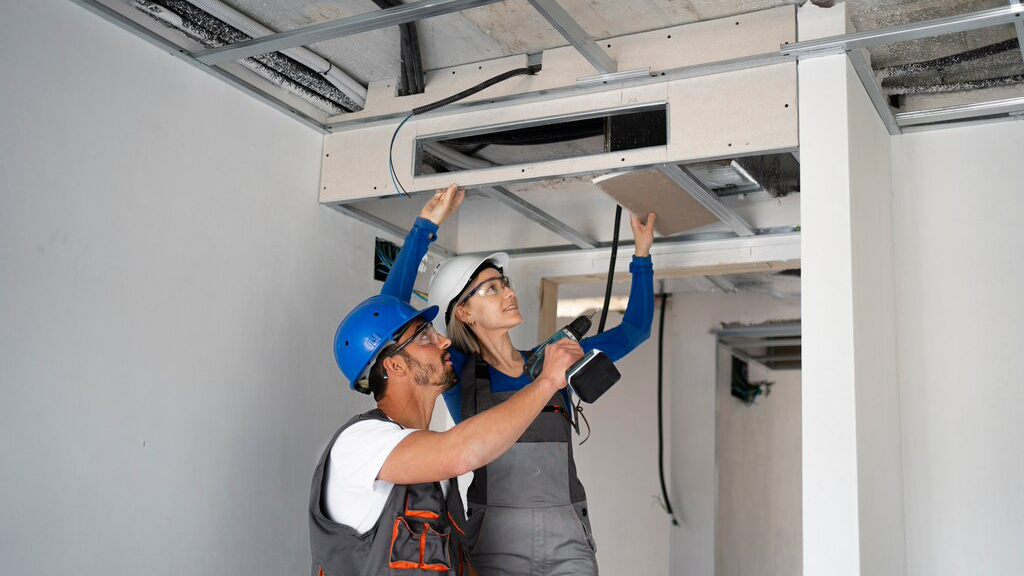Importance of HVAC Installation in New Constructions
Heating, Ventilation, and Air Conditioning (HVAC) systems are crucial in new construction projects, ensuring comfort, energy efficiency, and air quality. Here’s why HVAC installation is a key consideration in new buildings:
- Ensures Energy Efficiency
Modern HVAC systems are designed to be energy-efficient, reducing overall energy consumption. Proper installation and system design help optimize heating and cooling, leading to lower utility costs and reduced environmental impact.
- Enhances Indoor Air Quality
A well-installed HVAC system helps regulate air quality by filtering dust, allergens, and pollutants. It also controls humidity levels, preventing mold growth and maintaining a healthier indoor environment.
- Provides Optimal Comfort
HVAC systems keep the temperature inside the building the same regardless of the weather outside. Proper zoning and airflow management improve the distribution of heating and cooling throughout the building.
- Increases Property Value
A high-quality HVAC installation increases a property’s value and makes it more appealing to tenants or buyers. Energy-efficient systems can also qualify for tax incentives and rebates, further increasing the return on investment.
- Supports Smart Home Integration
New HVAC installations can be integrated with smart home technologies, allowing remote control and automation. This enhances user convenience and contributes to better energy management.
- Meets Building Codes & Regulations
New construction projects must comply with local building codes and energy regulations. Professional HVAC installation ensures compliance with these standards, avoiding potential legal issues and ensuring safety.
- Reduces Long-Term Maintenance Costs
Properly installed HVAC systems experience fewer breakdowns and require less maintenance. Investing in quality installation minimizes the risk of costly repairs and extends the lifespan of the system.
Why HVAC Installation is Necessary in New Construction
HVAC (Heating, Ventilation, and Air Conditioning) installation is an essential part of new construction projects. It ensures a comfortable, energy-efficient, and safe indoor environment for occupants. Here’s why HVAC installation is necessary in new buildings:
- Climate Control & Comfort
HVAC systems regulate indoor temperatures, keeping buildings warm in winter and cool in summer.
They ensure year-round comfort, preventing extreme temperature fluctuations.
- Air Quality & Ventilation
Proper ventilation removes pollutants, allergens, and moisture, improving indoor air quality.
It ensures a healthier living or working environment and stops the growth of mold.
- Energy Efficiency & Cost Savings
Modern HVAC systems use energy-efficient technologies, reducing electricity and fuel consumption.
Proper installation lowers utility costs and contributes to a greener environment.
- Compliance with Building Codes
New construction projects must meet building regulations and energy efficiency standards.
HVAC systems ensure compliance with heating, cooling, and ventilation requirements.
- Structural Protection & Longevity
Proper ventilation prevents excess humidity, which can cause structural damage, such as wood rot and mold growth.
HVAC systems help maintain the integrity of walls, ceilings, and insulation materials.
- Smart Technology Integration
New buildings can incorporate smart thermostats and automated HVAC controls for better energy management.
Remote access and programmable settings enhance convenience and efficiency.
- Increased Property Value
A property’s HVAC system increases its appeal to prospective tenants and buyers. Additionally, energy-efficient HVAC solutions may be eligible for tax rebates and incentives.



